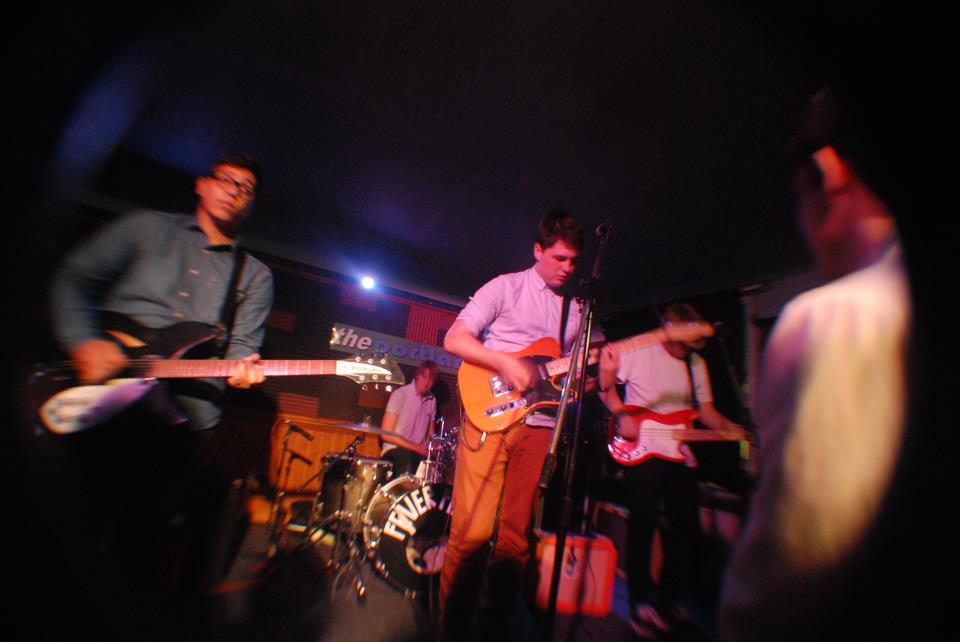


"When we go back to Montreal people think we're rock stars," says Lightburn, "but there is a certain underdog element to The Dears which will probably always be there. "We recorded our first album for $1,000 - that's 500 of your Earth pounds." Today, the group are regarded as local heroes in their native city. "I have starved and lived not even hand to mouth, and we have all had tough times and we have struggled and toured in a mini-van," Lightburn recalls. In their early days The Dears were the archetypal struggling artists living on the breadline. The new album's theme - the search for identity in a violent world - reflects their shared bond as outsiders. Donoso was born in Chile, Krief is a Moroccan Jew, Yanchak is of Ukrainian/Polish extraction, while Pelland and Jodoin-Keaton grew up steeped in French-Canadian culture. They are joined by keyboard player and flautist Valerie Jodoin-Keaton and her husband of 10 days, bassist Martin Pelland guitarist Patrick Krief and drummer George Donoso III. just doing this." He just trails off, glumly.įormed in Montreal in 1995, The Dears had various line-ups before settling on the current sextet, of whom Lightburn and Mrs Lightburn, aka keyboard player Natalia Yanchak, are the only founder-members. I enjoy playing music - it's therapeutic and cathartic and all that - but the whole machine. "I never decided to do this and I am still an unwilling participant. "This is something that chose me, not me choosing it," he declares. If Lightburn is a reluctant interviewee, he is also, by his own admission, a reluctant rock star who sees his work - like his father's - as a vocation. I guess that is what some people want out of their rock stars but I didn't sign up to be a rock star." "I don't feel like I need to pose or pretend to be some eccentric rock star with witty things to say," he explains, "because I am: a) not eccentric, and: b) not witty. His contempt for the promotion process, the endless cycle of answering the same questions to help sell his new record, is equally impassioned. Still in place, thankfully, are Lightburn's angry, anguished lyrics that rail against a cruel, unfair world. In their place is a raw and primal stripped-down style: an apocalyptic amalgam of guitars, bass and drums, through which Lightburn's anguished baritone is counterpointed by sweet girl-group harmonies from the band's two female keyboard players. Gone are the violins and flutes and cellos and rapidly shifting song-within-a-song structures. Five years on from their debut album, End of a Hollywood Bedtime Story, The Dears have shed the extravagant flourishes that characterised them and helped make their second album, No Cities Left, a critical and cult success. The album he is promoting, the self-mockingly titled Gang Of Losers, is a musical departure from the baroque chamber pop which has hitherto defined the Montreal sextet's sound.


 0 kommentar(er)
0 kommentar(er)
